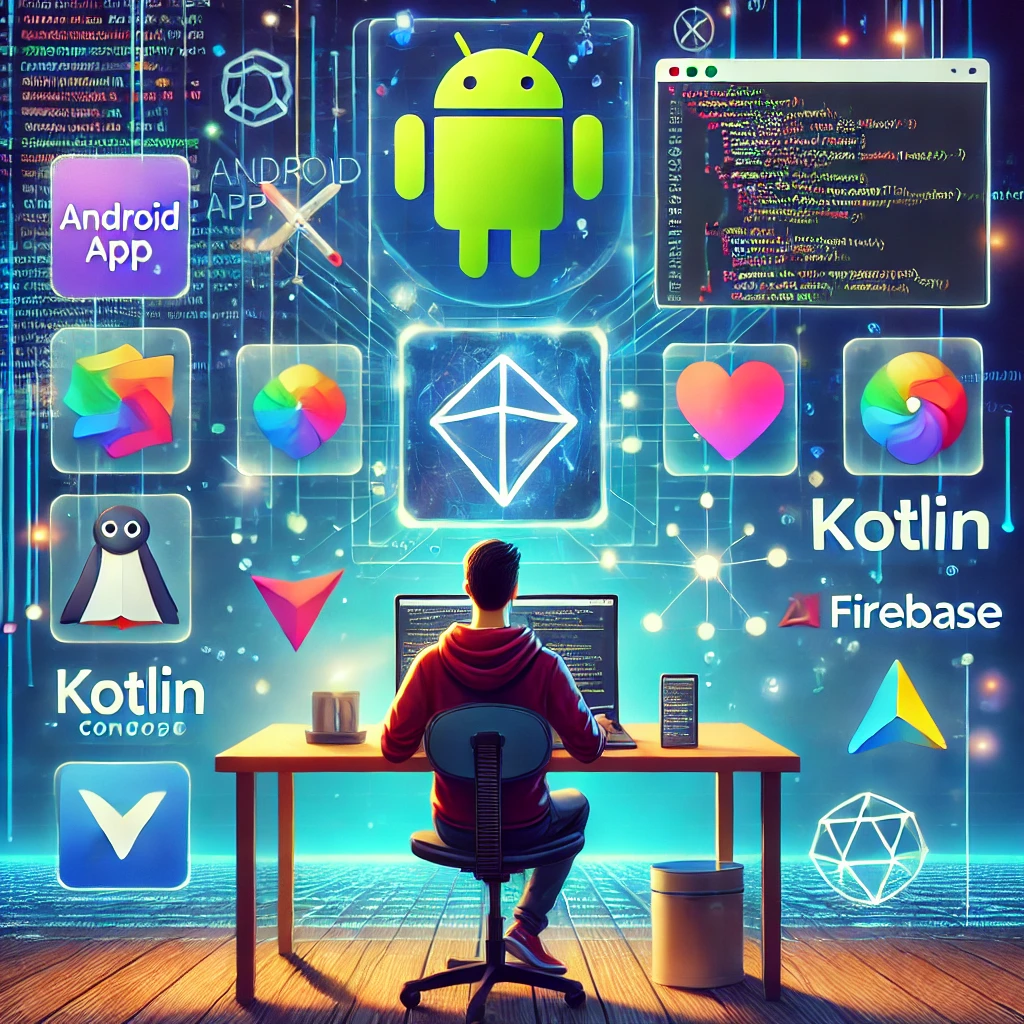
Mastering Android App Development: Tips, Tools, and Trends for 2024
The Android platform continues to dominate the global mobile market, making Android app development a critical skill for developers aiming to create innovative and engaging mobile experiences. As we step into 2024, staying updated with the latest trends, mastering powerful tools, and adopting best practices can help developers stay ahead of the curve. Here’s a comprehensive guide to mastering Android app development in 2024.
1. Understanding the Latest Android Trends
a. Jetpack Compose: The Future of UI Development
Jetpack Compose, Google’s modern UI toolkit, is revolutionizing the way developers build user interfaces. Its declarative approach simplifies UI coding and enhances reusability. In 2024, mastering Jetpack Compose is a must to create sleek and responsive UIs efficiently.
b. AI-Powered Applications
Integrating AI and machine learning features into apps is a growing trend. Tools like TensorFlow Lite allow developers to incorporate intelligent functionalities, such as voice recognition, image processing, and predictive analytics.
c. Foldable and Wearable Devices
With the rise of foldable smartphones and wearables, optimizing apps for varying screen sizes and device types is crucial. Developing adaptive layouts and ensuring smooth transitions will set your app apart in this niche market.
d. Kotlin Takes the Lead
Kotlin remains the preferred language for Android development, thanks to its concise syntax and robust features. As Google continues to promote Kotlin, its ecosystem is growing, making it essential for developers to deepen their knowledge of this language.
2. Essential Tools for Android Developers
a. Android Studio
As the official integrated development environment (IDE) for Android, Android Studio is packed with features like real-time profiling, advanced debugging, and seamless integration with Firebase. Learning shortcuts and optimizing its use can significantly boost productivity.
b. Firebase
Firebase is a powerful backend-as-a-service platform that simplifies authentication, database management, cloud functions, and crash reporting. Its integration with Android Studio makes it a go-to choice for many developers.
c. Git and GitHub
Version control is non-negotiable in software development. Using Git effectively and leveraging GitHub for collaboration, code reviews, and portfolio building is crucial for professional developers.
d. Libraries and Frameworks
Libraries like Retrofit for networking, Glide for image loading, and Room for database management streamline development processes. Keep an eye on newly released libraries to stay updated.
3. Tips for Efficient Android Development
a. Focus on Clean Architecture
Adopt clean architecture principles to create modular, testable, and scalable applications. Using design patterns like MVVM (Model-View-ViewModel) can simplify code maintenance.
b. Optimize Performance
Ensure your apps are optimized for speed and battery efficiency. Use tools like Android Profiler to monitor and improve app performance.
c. Prioritize Security
Data security is a critical concern. Use encryption, secure APIs, and authentication protocols like OAuth 2.0 to protect user data.
d. Master Asynchronous Programming
Learn to handle asynchronous tasks effectively using Coroutines or RxJava to ensure smooth user experiences, especially for tasks like fetching data from the internet.
4. The Future of Android App Development
As technology advances, Android app development will continue to integrate cutting-edge innovations:
- Augmented Reality (AR): ARCore is making AR experiences more accessible for developers and users alike.
- Cloud Integration: Seamless cloud integration will become a cornerstone of modern apps.
- Edge Computing: Processing data locally on devices instead of relying on centralized servers will enhance app performance and privacy.
Final Thoughts
Android app development in 2024 is brimming with opportunities for those willing to adapt and innovate. By mastering modern tools like Jetpack Compose, embracing trends like AI integration, and following best practices, developers can create apps that are not only functional but also future-proof.
